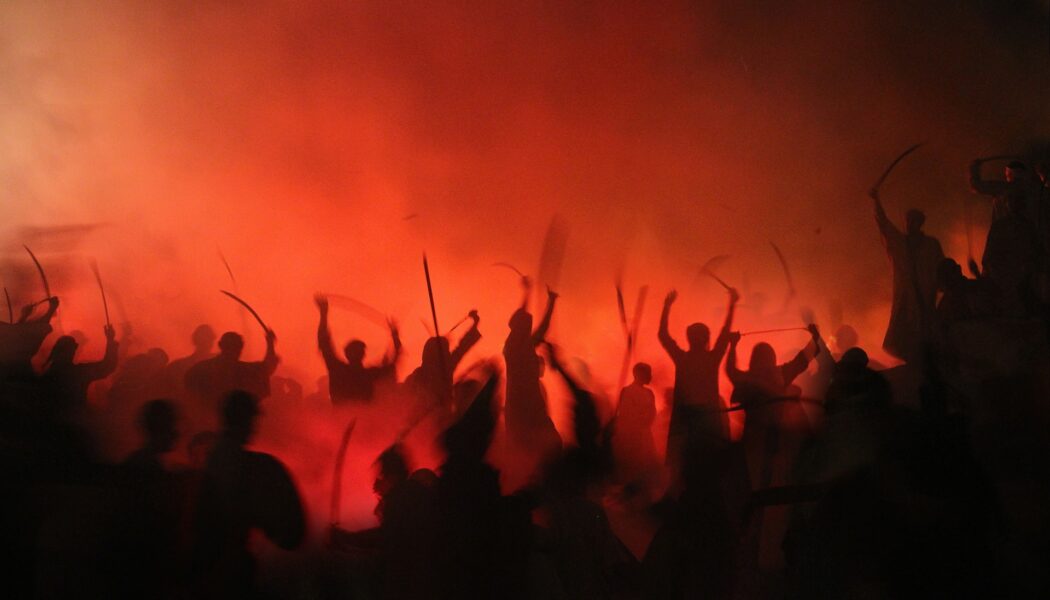An enraged mob stoned a middle-aged man to death inside a mosque in a remote village in eastern Pakistan for burning the Quran.
The mosque’s servant stated he witnessed a man burning the Quran but alerted other Muslims before the police arrived. Hundreds of men gathered, outraged by the occurrence, with the majority of them being TLP (Tehreek-e-Labbaik Pakistan) followers and activists. The man was already surrounded by the mob when police entered the mosque, and when they attempted to apprehend the man the crowd began throwing stones, gravely wounding some officers. Police requested reinforcements, but the attackers had already stoned the victim and hung his body on a tree.
The victim’s name is Mushtaq Ahmad, a forty-year-old man from a nearby village. According to Taher Ashrafi, the prime minister’s special envoy, dozens of people have been arrested in connection with the lynching which occurred last week in a rural village in Punjab province. The lynching follows another recent one, when a Sri Lankan manufacturing manager in Sialkot, also in Punjab, was beaten and set on fire by a gang for blasphemy just over two months prior.
Pakistan has reported 1,415 occurrences of blasphemy since 1947, according to statistics published by the Center for Security Studies and Research. Blasphemy accusations, according to international and national legal organizations, are frequently used to frighten religious minorities and settle personal scores.
Blasphemy is a highly sensitive topic in Pakistan, where it is punishable by death. More than 80 people are in prison for blasphemy, according to the US International Religious Freedom Commission, with half of them facing life in prison or the death penalty. The accused frequently face attacks by inflamed mobs, and are targeted by radical Muslim groups.
Pakistan is one of 12 Muslim-majority countries where blasphemy against Islam is punishable by death. Despite the fact that overt theocracies like Saudi Arabia and Iran frequently top lists for allegedly religiously required executions, Pakistan has yet to put anyone to death for blasphemy. This is largely due to Pakistan’s claims to be a democracy and its reliance on Western money contingent on human rights promises; indeed, this aided Pakistan’s moratorium on the death penalty between 2008 and 2015.
Clause 295-C of the Pakistan Penal Code, enacted by Gen Zia-ul-Haq and added by an Act of Parliament in 1986, is the legal basis for criminalizing insulting remarks about Mohammed. The penalty of life imprisonment was added to this statute in 1990, in order to penalize contempt toward the Holy Quran and insulting the Prophet. In 1992, the government took a step further and enacted the death sentence for those found guilty of blasphemy under the Pakistan Penal Code.
‘Whoever by words, either spoken or written, or by visible representation or by any imputation, innuendo, or insinuation, directly or indirectly, defiles the sacred name of the Holy Prophet Muhammad (peace be upon him) shall be punished with death, or imprisonment for life, and shall also be liable to fine’
The dangers of the blasphemy law include that it does not require proof of purpose or evidence after allegations are made, and it does not involve any penalties against those who make false allegations. Furthermore, the majority of persons accused of blasphemy in Pakistan spend years in prison awaiting a hearing. The dread of mass uproar and the violence of religious groups working at the grassroots level make a ban on such legislation untenable. The inefficiency of Pakistan’s political system has produced a massive hole, which has been filled by numerous religious groups, many of which are violent.









